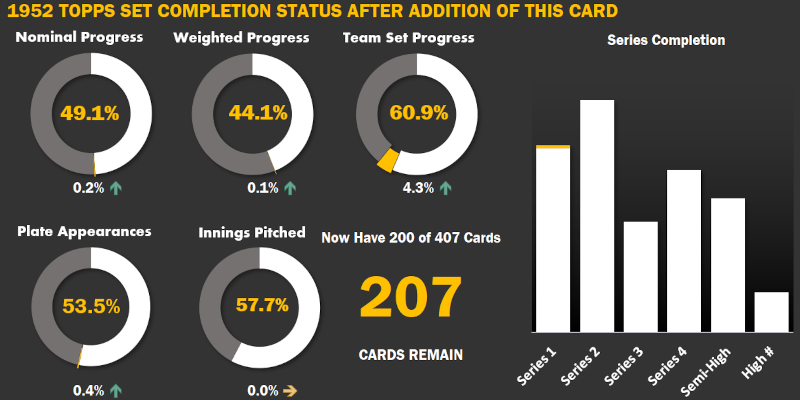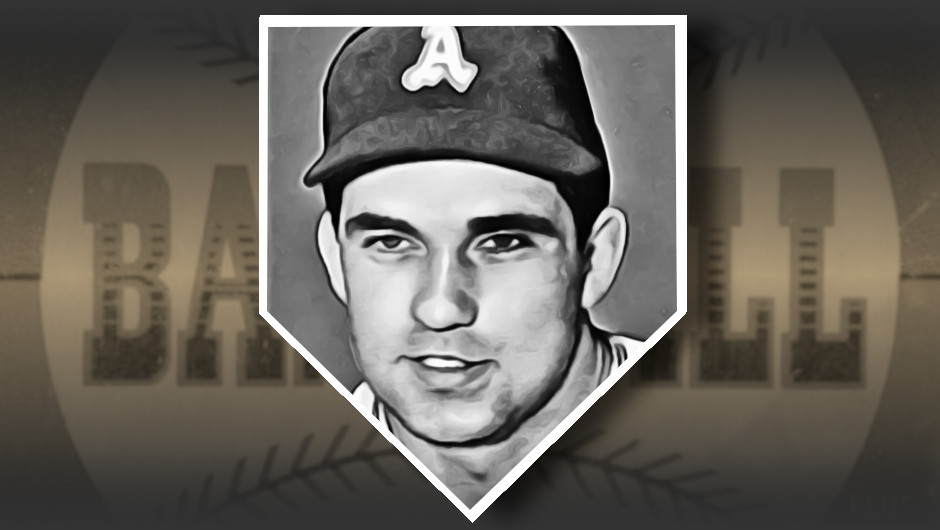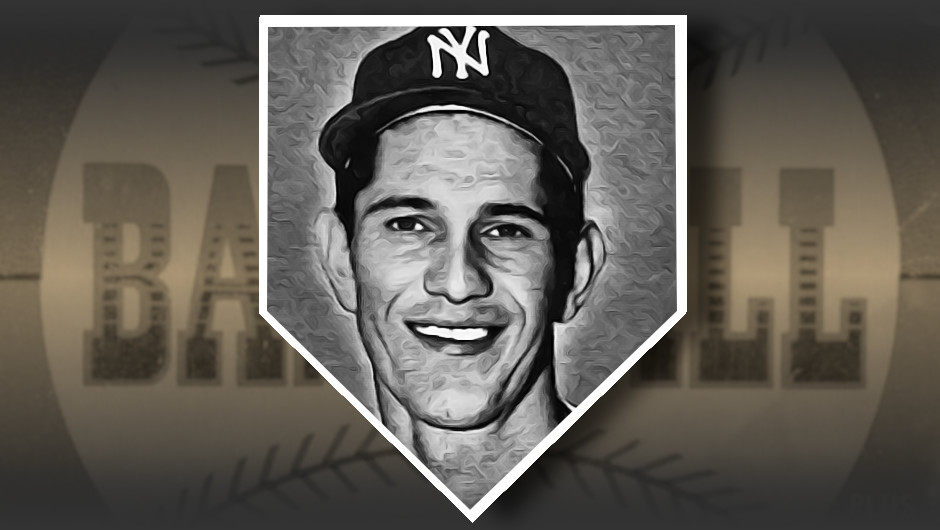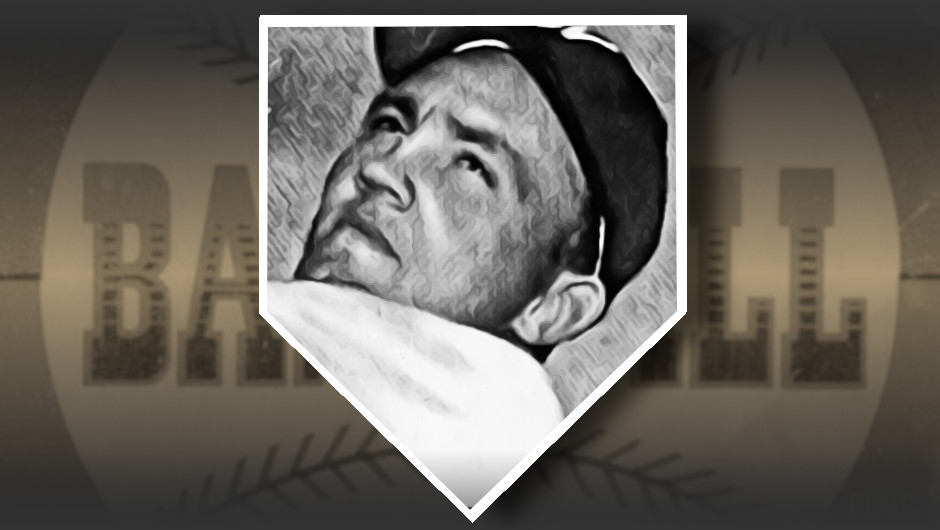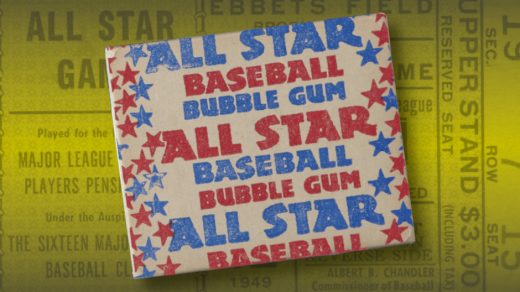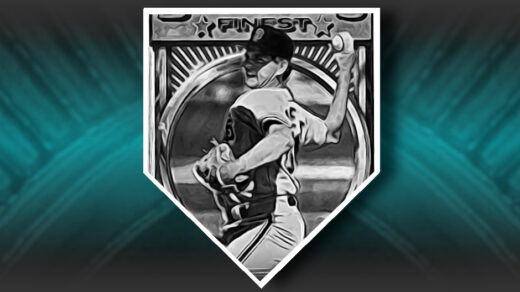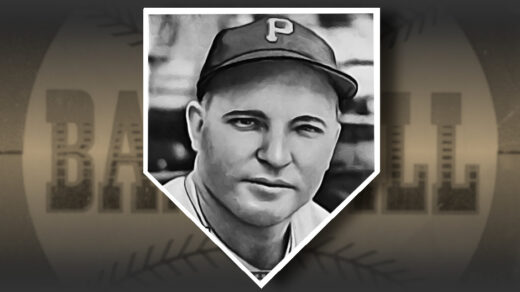I’ve previously written about professional baseball players who also played professional basketball in the forerunners to today’s NBA. Cardinals catcher Del Rice had been a forward on what would eventually become the Sacramento Kings. Frank Baumholtz played guard for the now defunct Cleveland Rebels. Neither was a significant scoring threat, but they at least put up double digit point totals in their brief hardcourt careers.
Irv Noren, one of the Washington Senators’ better offensive threats, was less of a scoring menace in his abbreviated time as a professional basketball player. He played as a forward for the National Basketball League’s Chicago American Gears in the 1946-47 campaign and is notable for exactly two things.
The first is the fact that his lifetime scoring total consists of a single point. Consider the scoring system of basketball, which primarily consisted of two-point field goals. Noren bucketed exactly zero of these, instead getting onto the score sheet through a trip to the free-throw line. Noren made one basket during his two free-throw attempts and was done. Dozens of basketball players with the faintest traces of a career have scored zero points, but Noren belongs in the rarified world of those with just a single point to their name. Limited playing time certainly played a role in bringing about this statistical oddity, as he had once scored as many as 37 points in a single college game.
Noren’s basketball career isn’t just known for the obscure trivia of his lifetime scoring total. It continues with the fact that he was a rookie alongside another American Gears player. George Mikan, the first superstar of the sport, was a newcomer to the Gears’ roster and led the team to the league championship.
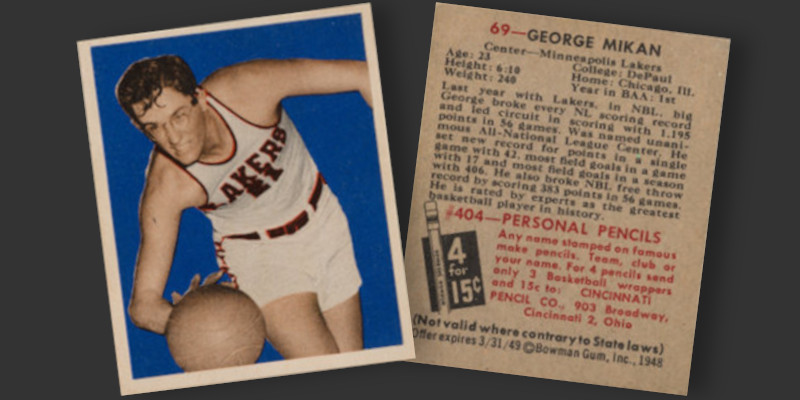
Noren’s basketball career ended before the playoffs even began. Pressured by Dodgers management he left basketball to devote his pursuits towards baseball on a full time basis. Despite a pair of minor league MVP awards, the Dodgers would end up selling their prospect’s contract to the Washington Senators at the conclusion of the 1949 season. Noren made the most of the transaction, quickly slotting into the Senators’ starting lineup and establishing himself as the team’s leading RBI producer.
His minor league record and quick big league start prompted the ever acquisitive New York Yankees to trade for his services. Once a part of the overloaded New York roster, Noren found himself as the platoon backup for each outfield position. He played in this part time manner for much of the remainder of his career, a period curtailed by accumulating knee injuries. Despite this, his statistical metrics show him to have been a moderately above average talent.
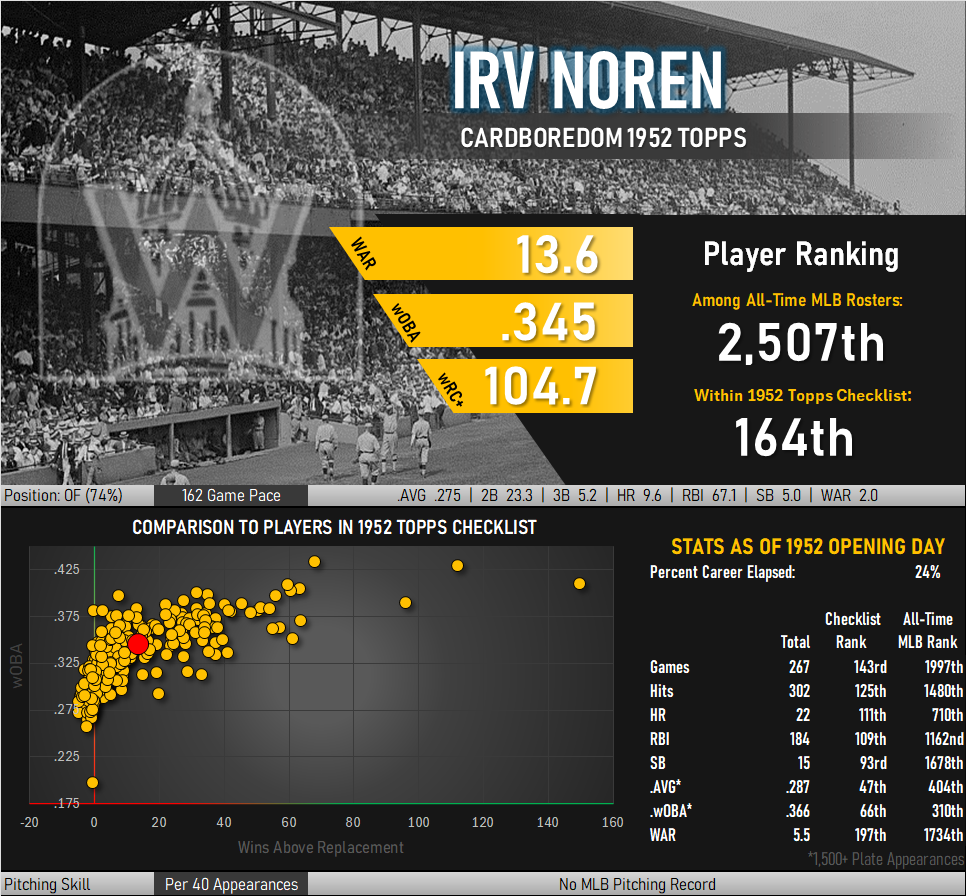
My 200th ’52 Topps Card
With the addition of Irv Noren to my 1952 Topps collection I think I have officially moved from having “a bunch” of cards from the set to “a lot” of cards. A few cards more and I’ll be able to say I have “most” of a 1952 set. This particular example has the usual centering issues and some substantial corner dings on the right side but still looks fantastic. I’m not particular about getting red or black back varieties for cards in the first series, preferring to obtain whatever is available at the time of acquisition. My Noren card happened to be a black back from the earliest packs of Series One.
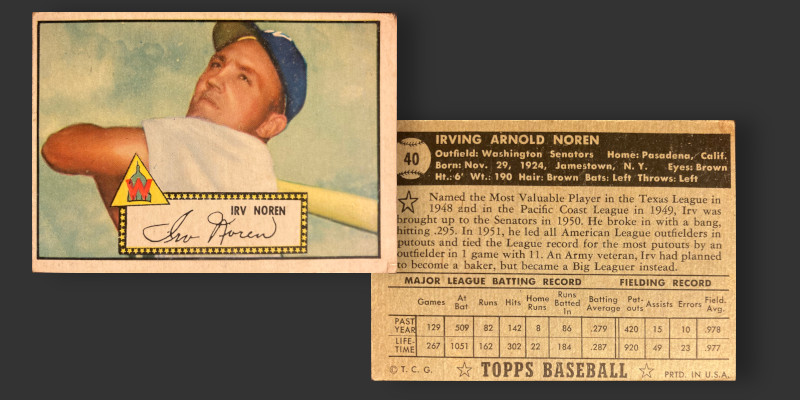
The card is one of the horizontal variety scattered throughout the checklist and is one of the better looking ones in that category. Noren is portrayed as one of the Washington Senators’ starting outfielders, though he would be traded to the New York Yankees for Jackie Jensen in early May 1952. The back of the card offers up the interesting note that Noren almost became a baker rather than a baseball player.
